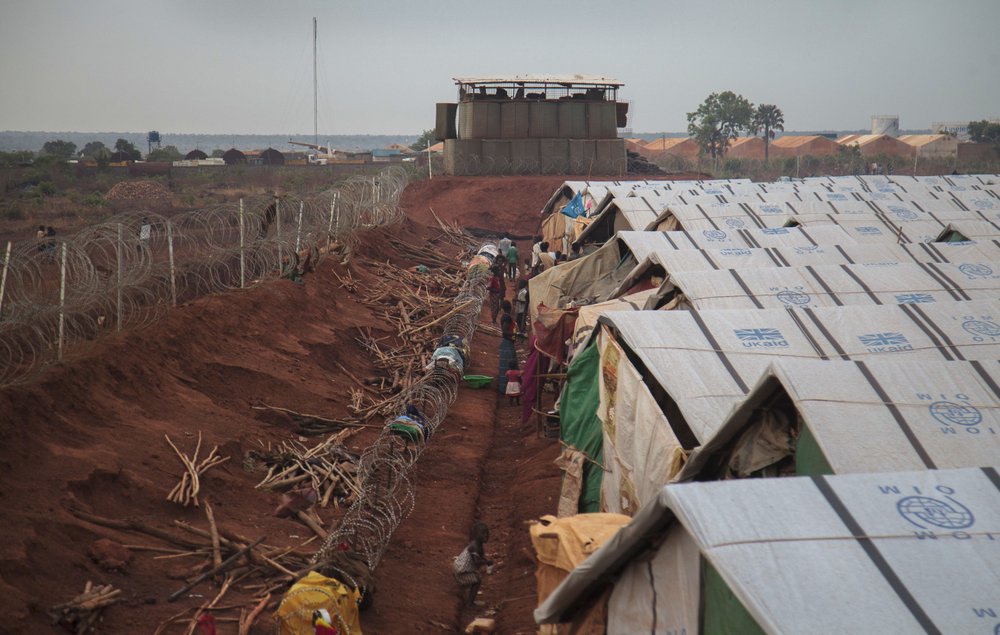
UN begins pullout from South Sudan civilian protection camps

The United Nations peacekeeping mission in South Sudan said Friday it has begun withdrawing its troops and police from the civilian protection camps that began as a frantic experiment in the heat of civil war and still shelter more than 180,000 people two years after the conflict ended.
Those peacekeepers must shift to new hotspots where several hundred people have been killed this year in intercommunal violence, notably Jonglei state, U.N. special representative David Shearer told reporters.
“It’s a significant withdrawal of numbers for us,” he said, adding that generally a company of 150 soldiers is assisted by one or two companies of police in guarding the camps.
No one will be forced to leave the camps, he said, adding that South Sudan’s government will take over responsibility for their security.
South Sudan’s five-year civil war killed nearly 400,000 people and erupted just two years after the world’s youngest country won independence from Sudan. As frightened civilians sought shelter, the U.N. in an unprecedented move threw open its gates and took them in.
The camps have seen attacks over the years, and insecurity outside them became so severe that some women venturing out for wood or other supplies were sexually assaulted.
The sites were meant to protect people “in imminent physical danger,” and for the thousands still sheltering in the crowded camps, “any threats that existed a few years ago are no longer in existence today,” Shearer said.
It is not clear how long the complete withdrawal will take. The process has begun at the camps in Wau and Bor, the U.N. said. The other camps are in Malakal, Bentiu and the capital, Juba.
Cases of COVID-19 have been reported in the camps, a major concern due to the crowded conditions and the few to no resources for intensive care.
Data from the U.N. mission show more peacekeepers have died this year than in any year during the civil war, with the most deaths – 11 – attributed to illness. Six peacekeepers died in June. It was not clear how many died from COVID-19.
There has been talk of closing the camps in recent years. Now, instead, the U.N. mission says South Sudan’s police will be responsible for law and order once the U.N. peacekeepers have gone.
South Sudan still struggles to slowly implement a 2018 peace deal that was meant to lead to elections. Shearer said he does not think the ongoing intercommunal violence in Jonglei threatens the agreement “because I see the main parties very committed to the peace process.”
The concern is that such violence can become political, he added. For now, the heavy rains that have displaced more than 150,00 people in the region are forcing armed groups to pull back, but “tensions still remain very high,” Shearer said.






